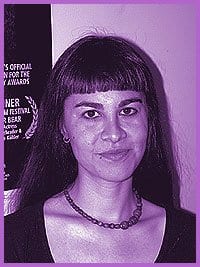Increasingly, Canadian universities are offering more competitive programs, and these include lesbian and gay studies. Also called sexuality, gender diversity or queer studies, this burgeoning discipline is the analysis and interpretation of people who identify as lesbian/gay/queer, as well as their culture, vehicles of self-expression and identification.
It is by nature interdisciplinary. Sources cover a wide range of intellectual fields, including anthropology, art history, education, fine arts, history, law, literature, medicine, philosophy, politics, psychology, religion and sociology. Unique to this discipline is the fact that it creates the opportunity for dialogue among disciplines and among institutions.
These programs of study originated in the work of academics who were pioneers in the area of queer studies. The first Canadian course offered was at York University in the autumn of 1971. At the time, work in the discipline of queer studies was produced to excellent scholarly standards without the luxury of institutional support. Academics dedicated themselves to groundbreaking research despite the knowledge that their work would be looked upon with suspicion, and they could possibly be faced with reprimand or censure. In the absence of a supportive academic community, their research was one of personal and political commitment.
A roadblock in this discipline then and now is the fact that the generation of materials relating to queer experience was itself inhibited and restricted. Many kept secret diaries written in code for which they alone held the key. Poets wrote works using tropes as signifiers in the place of their beloved or their love that for centuries went nameless. This secrecy has made research methodologies into the area of queer studies challenging. Academics are left either to infer meanings not clearly expressed or to rely on legal documents to identify behaviour that could be construed as being queer. There are more sources for gay men than lesbians. Historical inquiry into history on the latter usually includes the diaries of Anne Lister, the Ladies of Llangollen and the trial of Radclyffe Hall.
Among the universities in Canada that offer degree programs in lesbian and gay studies is the University of Toronto’s Sexual Diversity Studies program. In addition to the program that was founded in 1998, the Centre for Sexual Diversity Studies officially came into existence this past summer, and will be the focal point for symposia, seminars, guest scholars and public outreach. Gay and lesbian studies within the program cover a range of academic inquiry, and as of this fall, the program offers a major in the field in addition to its already established minor.
In 1985, Concordia offered the first lesbian studies curriculum, and students can now take a minor in interdisciplinary studies in sexuality. Similar minors and courses are on offer at the University of British Columbia, the University of Windsor, York University, Queens University, and the University of Waterloo.
Professor Brian Lewis, chair of McGill’s History Department, is also chairing the unofficial steering committee that is pushing to introduce a minor in Sexual Diversity Studies at the university.
“A number of queer academics and students across campus have been working on cajoling the administration into introducing this area of study for a couple of years now,” says Lewis. “McGill is behind other universities in Canada that have developed or are developing queer studies programs. There are a number of good scholars at McGill doing independent research in the area of sexuality studies. We are encouraging many others to offer courses that might be appropriate for a minor.”
If all goes according to plan, McGill will be offering a minor in Sexuality Diversity Studies starting next year. Presently, the university offers courses in the history of sexuality in Japan and China, sexuality and gender in Islam, music and sexual identity, and British queer history, among others.
The expansion of scholarly and popular interest in queer studies is also reflected in the growth of libraries that provide tools for research in this area. The Canadian Lesbian and Gay Archives have existed since 1973. As the research site for its proposed gay and lesbian studies program, the University of Western Ontario has established a Pride Library. Mount Saint Vincent University in Halifax has a rare books collection that includes the largest holding of lesbian pulp fiction of any university in North America.
Since the mid-1980s, the surge of interest in queer studies has been extraordinary, and the discipline has now gained a lasting position in major universities around the world. Rapidly growing interest of students, individual courses in the field of gay and lesbian studies and the scholarly work of Canadian academics will ensure that this new discipline flourishes across the country.

 Why you can trust Xtra
Why you can trust Xtra


